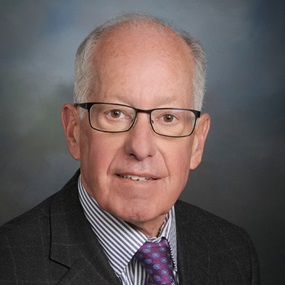Book Banning Represents Misguided Effort
By Stephen Asher, MD
 Like many of the literate community, I am concerned about the nationwide push to ban books that the self-appointed few opine as unsuitable. Book banning represents a misguided effort to kill ideas, particularly those that are felt antithetical to a narrow set of beliefs or attitudes. These efforts, many threatening monetary fines and violations of law, have resulted in the intimidation of librarians, booksellers, school boards, university departments, and open-minded citizens.
Like many of the literate community, I am concerned about the nationwide push to ban books that the self-appointed few opine as unsuitable. Book banning represents a misguided effort to kill ideas, particularly those that are felt antithetical to a narrow set of beliefs or attitudes. These efforts, many threatening monetary fines and violations of law, have resulted in the intimidation of librarians, booksellers, school boards, university departments, and open-minded citizens.
Efforts of this sort are, of course, nothing new. Ample precedents include the burning of “degenerate” literature in 1930’s Germany and the sacking of numerous libraries over the past two or more millennia.
Within the United States, literature’s suitability within the context of the First Amendment was adjudicated at the U.S. Supreme Court level in 1964 (Grove Press v. Gerstein 378 U.S. 577) in favor of Henry Miller’s Tropic of Cancer. This decision resulted in an encompassing, comprehensive, and workable definition of obscenity (references available upon request).
To the best of my knowledge, none of the books identified here in Idaho as unsuitable fulfill this well-worded definition. However, it should be noted and is unlikely coincidental, that many of these targeted books center on themes of gender identity. Thus, it would appear that those proposing legislation of this sort have quite intentionally conflated gender-related themes with obscenity, and are seeking to foist this conflation into the justice system in order to enforce their misguided views.
In Timothy Snyder’s chapbook, On Tyranny, the author neatly outlines the complex interface between a just and a tyrannical society. Chapter five is entitled Remember Professional Ethics. In this brief section, he reminds the reader that, without the assistance of lawyers, of businessmen, and of physicians, many of the horrors of WW II would have been stymied. These perversions, particularly of medical professional ethics, should be well known to most physicians.
Just as they have been determined to stifle a reader’s choice, Idaho’s legislators have had little hesitation in broaching the interface between medicine and statute.
Physicians as a group have a voice. To date, the voices that have been heard are those of individual physicians who have been directly impacted by recent legislation.
I would offer that either at a county level or preferably at a state level, our medical community speaks as one voice in opposition to book-banning in all its forms. Such a statement, while referencing settled constitutional law (see above) and crafted in the context of libraries, booksellers, school boards, etc., could, without much imagination, be applied to other intrusions into an individual’s privacy. Moreover, it would heighten awareness of this ill-conceived campaign’s violation of the First Amendment.
I offer the foregoing as an individual and as a retired physician. I have received no incentives or any other encouragement in the writing of this letter which represents solely my personal view.
All ACMS member contributions are solely the opinion of the author and do not necessarily represent the views of Ada County Medical Society, its Board of Directors, its staff, or the membership.


